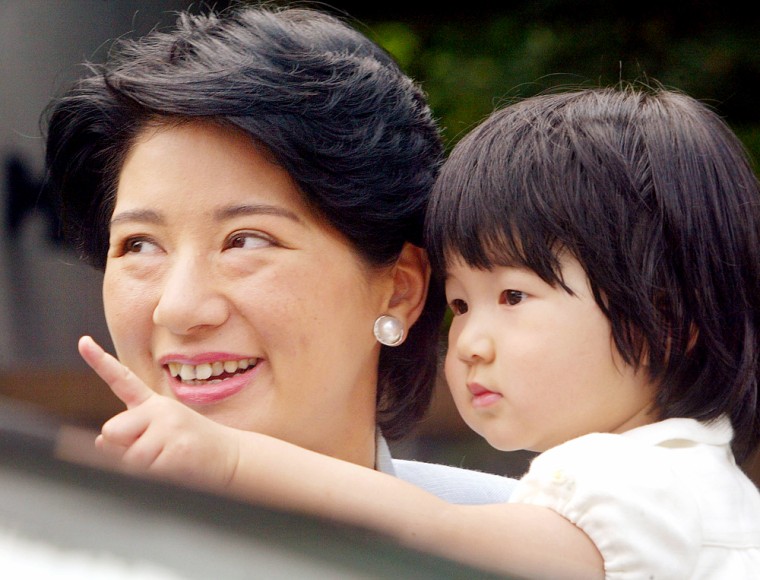An advisory panel on Japan’s monarchy will propose allowing women to ascend the throne, the chairman said Tuesday, in a boost to a measure that has broad support in Japan and could relieve pressure on the imperial family to produce a male heir.
The panel, which has been meeting for months on the issue, said it would recommend to Prime Minister Junichiro Koizumi that the law be revised to allow a female monarch.
Koizumi later told reporters that he would submit a bill to parliament next year. The amendment would be subject to approval from both houses of parliament.
Japan’s imperial family, led by Emperor Akihito, has not produced a male heir since the 1960s. Crown Prince Naruhito and Crown Princess Masako have one child, a 3-year-old daughter named Aiko.
Under the 1947 Imperial House Law, only males who have emperors on their father’s side can succeed to the Chrysanthemum Throne. That means neither Princess Aiko nor her future children can ascend the throne.
“Under the current law, a succession would become difficult in the future,” said panel chairman Hiroyuki Yoshikawa, a former University of Tokyo president.
Change first broached in July
In July, the panel compiled an interim report suggesting a legal change to allow a female monarch or to bring back members of the old aristocracy — or their offspring — who were forced from the imperial household after Japan’s defeat in World War II.
The panel, composed of people from politics, industry and academia, will now focus on remaining issues such as the extent and the order of succession, with the aim of issuing a final report in about a month, officials said.
The current law has put enormous pressure on the 41-year-old Masako to have a baby boy, so much so that she suffered a nervous breakdown in late 2003. The Harvard- and Oxford-educated former diplomat was forced to spend much of the following year out of the public eye as she recuperated.
No female monarch since 1771
Eight women have reigned in Japan since the legendary crowning of the first emperor in 660 B.C., including two who assumed the throne twice. But Japan hasn’t had a female monarch since Gosakuramachi, who ascended the throne in 1763 and abdicated in 1771.
The royal family is prohibited from interfering in politics under Japan’s constitution.
The idea of letting women take the throne has broad support in Japan. A poll by the Japan Association for Public Opinion Research and reported in the newspaper Tokyo Shimbun last week showed about 84 percent of Japanese supported such a change.
Only 6 percent of those surveyed in the Oct. 1-2 poll favored the current system of male-only succession. The support rating for a female monarch was the highest since the group began the polls in March.
The Tokyo Shimbun did not say how many people were polled or provide a margin of error. But Kyodo News agency said the poll surveyed 3,000 randomly selected adults aged 20 and older. It received responses from 1,746 people.
